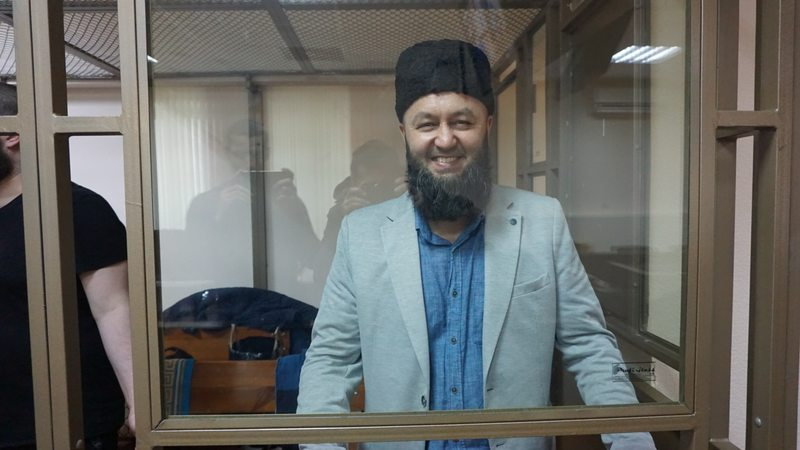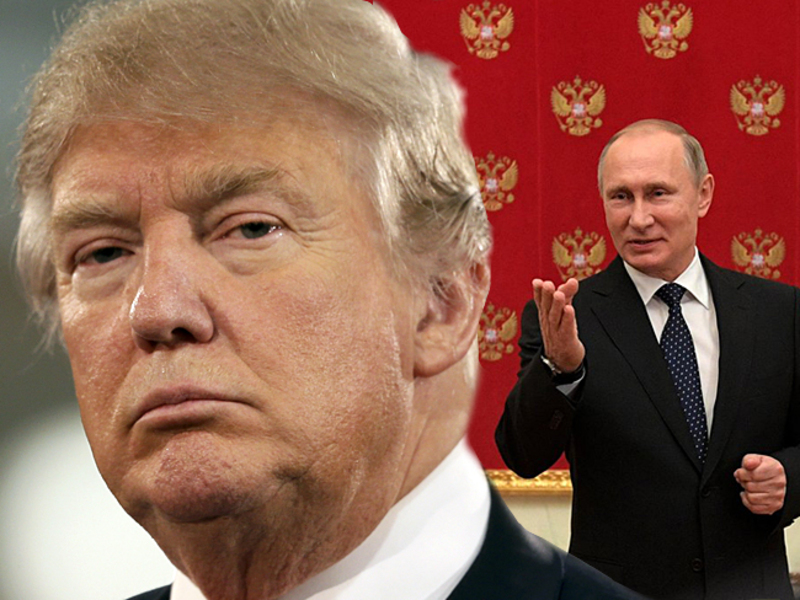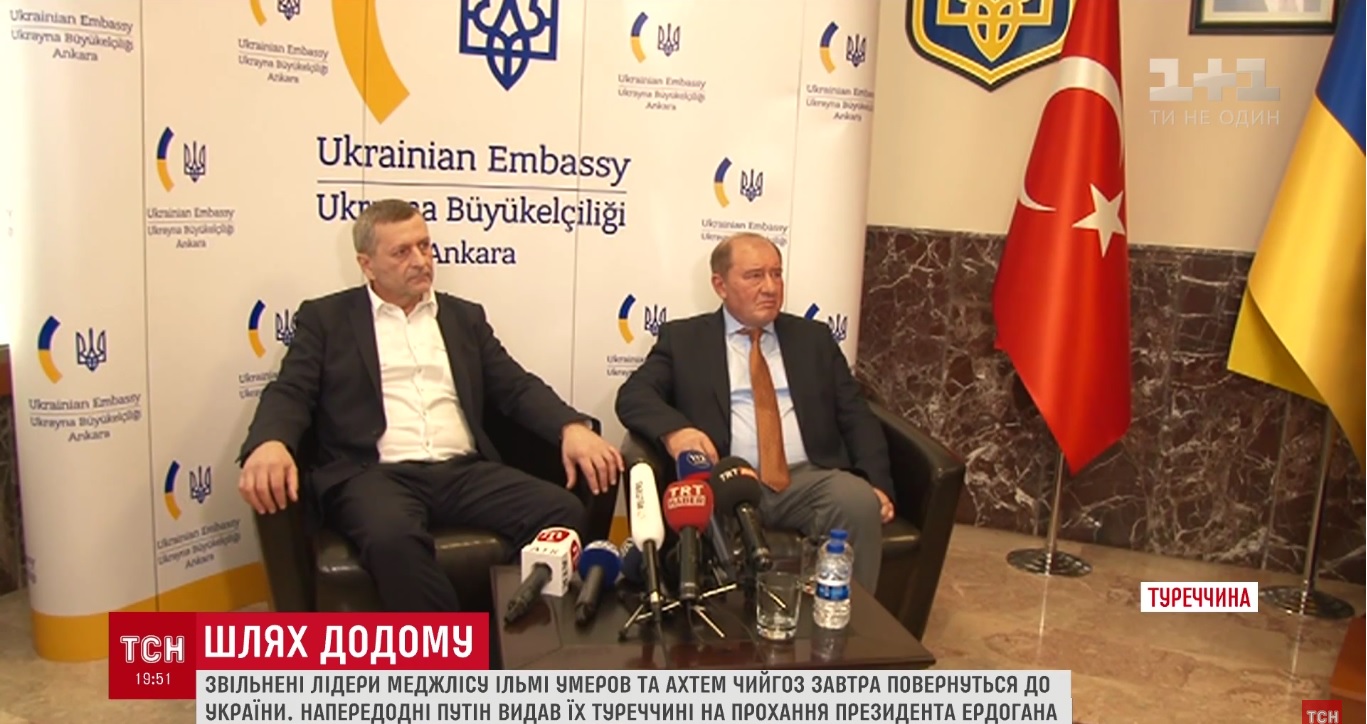Russia-controlled kangaroo courts crank out criminal cases to throw innocent people behind bars. Mainly, they are accused of terrorism with zero credible evidence. The conditions in Russian prisons don’t improve anybody’s health, but they are taking a terrible toll on the health of vulnerable Crimean Tatar prisoners with health issues, who are regularly pumped with painkillers so they won’t pass out during the politically motivated trials and return to suffer without treatment to their cells.
While what we usually regard as torture, with beatings and electric shocks, is a regular practice in Russian prisons to extract “confessions,” depriving detainees of crucial medical care is also viewed to the detainees may, in fact, be equated to torture, as the European Court of Human Rights ruled on numerous occasions. One of them is the case Ilascu and Others v Moldova and Russia (2004) when four detainees were held in a dire prison environment that deteriorated their health but they did not receive adequate medical care. The Court likened such treatment to torture. And in the case Jasinskis v. Latvia (2010), the Court ruled that by failing to medically examine the detainee prior to taking him into custody, the state breached the European Committee for the Prevention of Torture standards. With regard to Crimean Tatar political prisoners, the Crimean Human Rights Group expert Oleksandr Siedov views their detention conditions, in particular lack of medical care, as torture.
Euromaidan Press has collected stories of three ill Crimean Tatars who deserve your attention. Read to the end to find out how you can support the prisoners in a simple yet meaningful way.
Medzhyt Abdurakhmanov

Medzhyt Abdurakhmanov is one of the Crimean Tatar political prisoners held in captivity for a crime he never committed. Imprisonment is the price he pays for being an indifferent citizen.
Currently, he is staying in a remand centre. And its conditions leave much to be desired. For Medzhyt who has a chronic stomach ulcer and duodenal diseases, permanent displacement of vertebral discs, and backache being deprived of basic necessities in prisons, is destructive. Since Medzhyt was taken into custody, he has experienced health impairment, such as frequent headaches and erosion of teeth. Food and water in prisons are of unsatisfactory quality, to say nothing of proper medical care. Given Medzhyt’s unbearable back pain, he must take medical tests, be prescribed adequate treatment and placed in a medical unit. Instead, he is pumped with painkillers.
Torture and imprisonment is the price of freedom of speech in Russia-occupied Crimea

Medzhyt’s lawyer Refat Yunus directed a complaint to the Main Department of the Federal Penal Correction Service of the Russian Federation for the Rostov region as well as to the Head of the remand centre 1 of Rostov-on-Don and Head of the medical unit. Refat Yunus insists that Medzhyt Abdurakhmanov is hospitalized as ultrasound diagnostics, radiography, and examination by a trauma surgeon are critically needed.
Despite the pain, Medzhyt is forced to be present in trials.
“Let's say, he was given some temporary help only so that he can be brought to the court. I understand that this is all temporary medical intrusions and we will in any case press for taking radical measures, in particular from the health sector,” said Refat Yunus.
Medzhyt’s wife Elmira told about the proceedings of 18 May 2021 in which her husband was supposed to be present via video format but could not make it due to severe pain. Cynically, he was given a dose of anaesthetic and brought to the courtroom on a stretcher. The story repeated the next day. Elmira Abdurakhmanova
commented on her husband’s state of health,
“We could see he was bent out of shape because his spine was pinched. He could barely sit, to say nothing of standing still.”

Since Russia occupied Crimea in 2014, Medzhyt got up to his neck in activism. He joined Crimean Solidarity, a social movement set up in 2016 by a joint effort of the relatives of the arrestees, lawyers, and activists as an informal human rights organization for the protection of the victims of political repressions. Medzhyt attended trials, was present at searches, and came out in solitary pickets. For expressing his views, he was punished with a 10,000 ruble fine and five days in a remand centre.
Medzhyt Abdurakhmanov was arrested on trumped-up terrorism charges on 27 March 2019. This happened after Russian security officers conducted the biggest mass searches in the homes of religious Crimean Tatars in Kamenka and Strohanovka districts of Simferopol city. For alleged “participation in the activities of a terrorist organization,” Medzhyt is facing 20 years of confinement. After Medzhyt’s arrest, his three kids were left without their father's love and care.

Servet Gaziev

Servet Gaziev, 61 years old, is another Crimean Tatar political prisoner whose health is neglected in a Russian detention centre. On June 10, before one of his trials, the seriously ill Servet was only given painkillers, so that the hearing, technically a mere formality (his and all other such cases against Crimean Tatars are predetermined), could take place.
This trial at the Southern District Military Court of Rostov-on-Don, Russia was unbearable for Servet. During the few-minute hearing, he had two episodes of abdominal pain and collapsed on the bench in the glass box for defenders. The only treatment he got on that day was another dose of painkiller which was still ineffective.
Svetlana Ablyamitova, Servet’s sister, is a doctor and she claims that the excessive use of painkillers worsens her brother’s health. Following the trial, she wrote on her Facebook,
“Today, the Southern District Military Court could not hear the case against 'the Second Simferopol Group' Hizb ut-Tahrir involving 25 Crimean Tatar activists, among whom is my brother, Servet Gaziev. My 61-year-old brother was unwell yet again!!! Since March 2021, an ambulance was called for the fifth time for him! This morning in the remand centre he was given a painkiller shot from complaints of pain. Yet, he was taken to the court building to participate in the process. Some 20 minutes after the arrival, he faced another attack. The panel of judges decided to suspend a process and had to call paramedics. Feldsher gave him a shot of painkillers but Servet did not feel better. For how long will this abuse be going on?
How can they call him a 'terrorist?' Look at him! At his state! His imprisonment poses risks not only to his health but also to life!!!”
For a long time, Servet Gaziev experienced agonizing stomach pain. The paramedics who arrived at the court building diagnosed him with chronic cholecystitis, or an inflammation of the gallbladder. Apart from pain, this illness causes vomiting and fever. Despite Servet’s health and an urgent need for a proper health check along with treatment, he had been held in remand prison.
The 10 June trial gave Servet Gaziev a glimpse of hope which faded as fast and it appeared. After the hearing, Servet was hospitalized and his blood test was made. A surgeon examined Servet and just went away holding his tongue. The hospital even failed to make basic ultrasound diagnostics. Notwithstanding Gaziev’s acute pain and very high blood pressure, he was taken back to prison on 17 June. On June 18, he again had an attack while tried, reports Rifat Yakhin, the defense lawyer.
To make matters worse, the 61-year-old prisoner has almost definitely suffered a micro-stroke following months of hypertension and clear signs that he had contracted COVID-19. Despite his alarming situation, the Russian prison authorities claim he does not require hospitalization, yet refuse to disclose details about his state of current health.

As a Ukrainian journalist Halya Coynash pointed out,
“If the person seems likely to survive to the end of their shift, the medical staff presumably prefer to avoid annoying Russia’s FSB and prosecutors.”
Apart from hypertension and cholecystitis, Servet suffers from teeth erosion as a result of a poor diet in prison.
Mr. Gaziev is a person with a tender heart who lived a modest life and was always eager to give a helping hand to those in need. Since 2014, Crimean Tatars started bearing the brunt of Russia’s occupation regime, Servet helped the wives of political prisoners who became single mothers after their husbands were arrested on politically motivated charges. A year before his arrest, he left his permanent job due to health reasons.
The elderly Crimean Tatar was arrested on 27 March 2019, on the same day and facing the same charges as Medzhyt Abdurakhmanov. He will face 20 years in prison for alleged terrorism accusations.
Zekiria Muratov

Russian prison conditions showed no mercy also to Zekiria Muratov, another Crimean Tatar political prisoner.
Zekiria’s lawyer Emine Avamileva visited him in a remand centre No.1 in Rostov-on-Don, Russia, and learnt that Muratov had faced a hypertensive crisis.
She told,
“He told me that before I came, he had very high blood pressure, around 200. And before that, starting 12 February, as he says, he was given treatment for a hypertensive crisis. Recently, he has suffered from very high blood pressure spikes, such as 200-230/120. This is manifestly a hypertensive crisis.”
All requests for information on the prisoner’s health issued by Emine Avamileva were declined.

Zekiria Muratov is a person with a disability. He suffers from a number of musculoskeletal disorders and chronic illnesses, such as hypertension and cardiac angina. One thing remains clear: he must be taken to a hospital for proper diagnostics and treatment. Zekiria was notified he is waiting for transfer to a hospital but “it is unclear when it [medical help] will be given to him,” said Lilia Gemedzhy, a lawyer.
But Russian courts do not think so. The appellate court in Vlasikha, Moscow Oblast, Russia turned down a writ of appeal calling to change the measure to secure criminal proceedings from detention in custody, given his health state. The defense insisted that since Zekiria has such a complicated disease and a disability (which is a basis for choosing a measure to secure criminal proceedings), his detention term must not be exceeded. The defense lawyer claimed that Zekiria has no opportunity to leave the territory of Crimea and Russia despite the fact he is a Ukrainian national. Neither can he exert pressure on the witnesses or influence the course of investigation, as all materials are attached to the case.
Zekiria Muratov needs to have his disability to be prolonged after examination by a medical expert commission. But his requests for examination are turned a blind eye to.
He was arrested on 7 July 2020, following mass searches in Crimea and charged with alleged terrorism.
What do these cases have in common?
All three Crimean Tatars are charged with alleged terrorism, or affiliation with Hizb ut-Tahrir.
In fact, it complies with peaceful means and none of its members has ever committed a terrorist act. According to the Russian Memorial Human Rights Center, the 2003 Supreme Court of Russia decision declaring Hizb ut-Tahrir a terrorist organization had no credible justification.
Memorial deems persons accused of affiliation with Hizb ut-Tahrir political prisoners, because membership in the organization alone, without committing illegal acts, serves as a sufficient condition for lengthy terms behind bars.
Hence, Russia systemically exploits this legal mechanism to persecute innocent people professing Islam and this way combat religious dissent inside the country as well as in occupied Crimea.
Why does Russia liken Crimean Tatars to terrorists?
Russia’s terrorism charges against Crimean Tatars in the occupied peninsula is a deliberate policy. There are more than 100 Crimean Tatars accused of involvement with Hizb ut-Tahrir. The prisoners are divided in 12 Hizb ut-Tahrir groups. The first such group came under attack in Sevastopol in 2015. The last -- in February 2021.
As a defence lawyer in such cases, Nikolai Polozov emphasizes that innocent people are basically accused of reading specific literature and discussing religious topics. And their sentences are pretty long. Crimean Tatars Muslim Aliiev and Suleiman Asanov
received the harshest sentences -- 19 years in strict-regime prison colonies.


These people neither have committed nor even thought of committing an act of terrorism. As Polozov wrote,

“For the whole time the Autonomous Republic of Crimea had been a part of independent Ukraine, starting from the moment of mass return of Crimean Tatars from the places of deportation, the peninsula saw no terrorist attacks. [...]
Thoughts, conversations, or reading books cannot be crimes with such harsh penalties. The so-called crime-prevention measures cannot supplant a real fight against those who pose a threat to other people, which is much needed now.
It is clear why law-enforcement agents are so fiercely mastering their agenda in Crimea. This ‘prevention’ is similarly easier and more secure for the authorities than finding real threats and combating them.
But the Russian law-enforcement practice goes the path of least resistance where it does not make any difference if a person really thought of, planned, or prepared a terrorist attack or just got his mind around religion not in the context and not within the framework established by the authorities and religious scholars of the respective state bodies.”
But what is the purpose of this systemic attack? As Polozov believes, the Russian occupation authorities introduced “Islamophobic policy directed towards creating an atmosphere of fear and hatred of the local community and the visitors towards Crimean Tatars who profess Islam.” He further highlights that “the notion of “terrorism” in Crimea is being exploited merely with mercantilist political objectives but the victims of such policy of Russian authorities have become hundreds of people -- the victims of political repressions, their family members, particularly kids.”
Speaking of terrorism charges against Crimean Tatars, a reference must be made to 1944, the year when Stalin ordered the mass deportation of the Crimean Tatar people. Then they were wrongfully called “turncoats” as an excuse for the Soviet government to commit this crime. And today Russia is going out of its way to pigeonhole Crimean Tatars as terrorists. No matter that the Crimean Tatar tradition has nothing in common with resorting to violence to achieve their purpose.
What can you do about the situation?
To cheer up the Crimean Tatar political prisoners who are staying in dire conditions in Russian prisons, you can write letters, send pictures and postcards!
- Write in the Russian language.
- Avoid subjects and statements that may provoke Russian authorities (the letters are checked by Russians before transmitted to prisoners).
- Use the sample letter below for your convenience.
- Add a drawing or a photo.
- Mention your address so receive a reply answer from the prisoner.
Sample letter
Здравствуйте,
Я пишу пожелать Вам здоровья, терпения и крепкой веры в скорое освобождение! Мы с Вами и о Вас помним!
(Translation from Russian into English: Hello, I want to wish you good health, patience and strong faith that you will soon be freed. We are with us and we remember about you.)
Addresses:
Абдурахманову Меджиту Анафиевичу, 1975 г. р.
ул. Максима Горького, 219, г. Ростов-на-Дону, Ростовская обл., Россия, 344022, ФКУ СИЗО-1
Or in English
Abdurakhmanov Medzhyt Anafiievich, b. 1975
344022 Russian Federation, Rostov on the Don, 219 Maxim Gorky St, SIZO-1
Газиеву Сервету Абдураимовичу, 1960 г. Р.
ФКУ Следственный изолятор №5 ГУФСИН России Ростовской области, 344064, г. Ростов-на-Дону ул. Тонельная, 4
Or in English
Servet Gaziev Abdurayimovych, b. 1960
344064, Russia, Rostov on the Don, 4 Tonnelnaya St., SIZO-5
Муратову Зекирье Саитовичу, 1957 г. Р.
ул. Максима Горького, 219, г. Ростов-на-Дону, Ростовская обл., Россия, 344022, ФКУ СИЗО-1
Or in English
Zekiria Muratov Saitovich, b. 1957
344022 Russian Federation, Rostov on the Don, 219 Maxim Gorky St, SIZO-1
Words of freedom: why you should send a letter to a political prisoner of the Kremlin
Read also:
- Russia tried to break the Crimean Tatars. Their non-violent resistance only grew stronger.
- Torture and imprisonment is the price of freedom of speech in Russia-occupied Crimea
- “Hell. Despair. The feeling of absurdity.” Ukrainian journalist jailed in occupied Crimea describes FSB torture in harrowing letters
- Seven years of occupation of Crimea: human rights activists systematise human rights violations on peninsula
- “I do not want my children to live in a country of terror.” Four inspiring letters from Crimean Tatar political prisoners not broken by Russia
- Russia’s vile attempts to discredit the Crimean Tatars must not be kept silent
- Pull off a kangaroo court in five easy steps: a how-to guide from Russia
- Photo project spotlights Crimean Tatar kids born after their fathers’ unlawful arrests by Russian occupation authorities
- Russian prison system is a ticking time bomb for health of a Crimean Tatar





